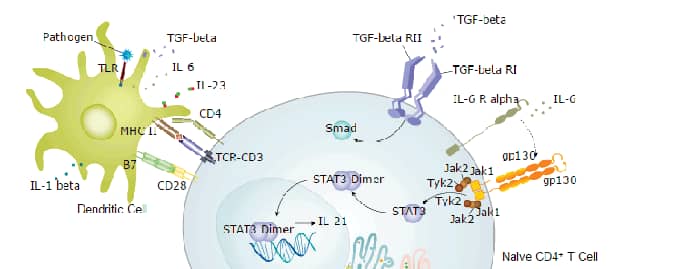Human B7-2/CD86 PerCP-conjugated Antibody
Human B7-2/CD86 PerCP-conjugated Antibody Summary
Applications
Please Note: Optimal dilutions should be determined by each laboratory for each application. General Protocols are available in the Technical Information section on our website.
Scientific Data
 View Larger
View Larger
Detection of B7‑2/CD86 in Human PBMCs by Flow Cytometry. Human peripheral blood mononuclear cells (PBMCs) were stained with Mouse Anti-Human B7-2/CD86 PerCP-conjugated Monoclonal Antibody (Catalog # FAB141C) and Mouse Anti-Human CD14 APC-conjugated Monoclonal Antibody (Catalog # FAB3832A). Quadrant markers were set based on control antibody staining (Catalog # IC002C). View our protocol for Staining Membrane-associated Proteins.
Preparation and Storage
- 12 months from date of receipt, 2 to 8 °C as supplied.
Background: B7-2/CD86
B7-1 and B7-2, together with their receptors CD28 and CTLA-4, constitute one of the dominant costimulatory pathways that regulate T- and B-cell responses. Although both CTLA-4 and CD28 can bind to the same ligands, CTLA-4 binds to B7-1 and B7-2 with a 20-100 fold higher affinity than CD28 and is involved in the down-regulation of the immune response. B7-1 is expressed on activated B cells, activated T cells, and macrophages. B7-2 is constitutively expressed on interdigitating dendritic cells, Langerhans cells, peripheral blood dendritic cells, memory B cells, and germinal center B cells. Additionally, B7-2 is expressed at low levels on monocytes and can be up-regulated through Interferon gamma. B7-1 and B7-2 are both members of the immunoglobulin superfamily. Human B7-2 is a 329 amino acid (aa) protein containing a putative 23 aa signal peptide, a 224 aa extracellular domain, a 21 aa transmembrane domain, and a 61 aa cytoplasmic domain. Human B7-2 and B7-1 share 26% amino acid identity. Human and mouse B7-2 share 50% amino acid identity. However, it has been observed that both human and mouse B7‑1 and B7‑2 can bind to either human or mouse CD28 and CTLA-4, suggesting that there are conserved amino acids which form the B7-1/B7-2/CD28/CTLA-4 critical binding sites.
- Azuma, M. et al. (1993) Nature 366:76.
- Freeman, G.J. et al. (1993) Science 262:909.
- Freeman, G. et al. (1991) J. Exp. Med. 174:625.
- Selvakumar, A. et al. (1993) Immunogenetics 38:292.
- Chen, C. et al. (1994) J. Immunol. 152:4929.
- Freeman, G.J. et al. (1993) J. Exp. Med. 178:2185.
Product Datasheets
Citation for Human B7-2/CD86 PerCP-conjugated Antibody
R&D Systems personnel manually curate a database that contains references using R&D Systems products. The data collected includes not only links to publications in PubMed, but also provides information about sample types, species, and experimental conditions.
1 Citation: Showing 1 - 1
-
High Cellular Monocyte Activation in People Living With Human Immunodeficiency Virus on Combination Antiretroviral Therapy and Lifestyle-Matched Controls Is Associated With Greater Inflammation in Cerebrospinal Fluid
Authors: T Booiman, FW Wit, I Maurer, D De Frances, CA Sabin, AM Harskamp, M Prins, P Garagnani, C Pirazzini, C Franceschi, D Fuchs, M Gisslén, A Winston, P Reiss, NA Kootstra
Open Forum Infect Dis, 2017-05-25;4(3):ofx108.
Species: Human
Sample Types: Whole Cells
Applications: Flow Cytometry
FAQs
No product specific FAQs exist for this product, however you may
View all Antibody FAQsReviews for Human B7-2/CD86 PerCP-conjugated Antibody
There are currently no reviews for this product. Be the first to review Human B7-2/CD86 PerCP-conjugated Antibody and earn rewards!
Have you used Human B7-2/CD86 PerCP-conjugated Antibody?
Submit a review and receive an Amazon gift card.
$25/€18/£15/$25CAN/¥75 Yuan/¥2500 Yen for a review with an image
$10/€7/£6/$10 CAD/¥70 Yuan/¥1110 Yen for a review without an image





